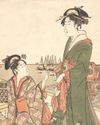The secret to living longer, better lives as told by the age-old guiding principles of the Japanese.
The Japanese live longer than most, statistically speaking. For almost three decades, the land of the rising sun has topped the World Health Organization’s list of average life expectancy. In 2017, the country also reported a staggering population of more than two million who had crossed the 90-year-old age mark. It then comes as little surprise that Kane Tanaka, who was minted the oldest living person by Guinness World Records, hails from Japan.
Discounting anomalies, the length of one’s life is intrinsically linked to the way of life. If the numbers are anything to go by, the Japanese have long decoded, or rather invented, the elusive formula for longevity.
There are specific principles that ground the distinctively Japanese approach to life. By now, the rest of the world has at least had a brief introduction, courtesy of Marie Kondo — the petite, mild-mannered Japanese lady who has pervaded households across the globe with a methodical approach to tidying up learnt from her culture.
“Each time I return home, I greet the house. This is my way of expressing thanks for the shelter and comfort it provides me,” she writes on her Facebook page. To the uninitiated, Kondo’s practice of giving gratitude to inanimate objects as it plays out on her Netflix series is puzzling, bizarre behaviour. Where Kondo is from, the belief that kami — or the divine — inhibits all forms of life (and therefore, all things, living or otherwise should be respected) is adopted by a significant proportion of the country’s inhabitants. Although rooted in the traditional Japanese religion of Shinto, when stripped away of its religious context, the ideology still holds ground as a general approach to life.
Bu hikaye T Singapore: The New York Times Style Magazine dergisinin June 2019 sayısından alınmıştır.
Start your 7-day Magzter GOLD free trial to access thousands of curated premium stories, and 9,000+ magazines and newspapers.
Already a subscriber ? Giriş Yap
Bu hikaye T Singapore: The New York Times Style Magazine dergisinin June 2019 sayısından alınmıştır.
Start your 7-day Magzter GOLD free trial to access thousands of curated premium stories, and 9,000+ magazines and newspapers.
Already a subscriber? Giriş Yap

Look At Us
As public memorials face a public reckoning, there’s still too little thought paid to how women are represented — as bodies and as selves.

Two New Jewellery Collections Find Their Inspiration In The Human Anatomy
Two new jewellery collections find their inspiration in the human anatomy.

She For She
We speak to three women in Singapore who are trying to improve the lives of women — and all other gender identities — through their work.
Over The Rainbow
How the bright colours and lively prints created by illustrator Donald Robertson brought the latest Weekend Max Mara Flutterflies capsule collection to life.

What Is Love?
The artist Hank Willis Thomas discusses his partnership with the Japanese fashion label Sacai and the idea of fashion in the context of the art world.

The Luxury Hotel For New Mums
Singapore’s first luxury confinement facility, Kai Suites, aims to provide much more than plush beds and 24-hour infant care: It wants to help mothers with their mental and emotional wellbeing as well.

Who Gets To Eat?
As recent food movements have focused on buying local or organic, a deeper and different conversation is happening among America’s food activists: one that demands not just better meals for everyone but a dismantling of the structures that have failed to nourish us all along.

Reimagining The Future Of Fashion
What do women want from their clothes and accessories, and does luxury still have a place in this post-pandemic era? The iconic designer Alber Elbaz thinks he has the answers with his new label, AZ Factory.

A Holiday At Home
Once seen as the less exciting alternative to an exotic destination holiday, the staycation takes on new importance.
All Dressed Up, Nowhere To Go
Chinese supermodel He Sui talks about the unseen pressures of being an international star, being a trailblazer for East Asian models in the fashion world, and why, at the end of the day, she is content with being known as just a regular girl from Wenzhou.